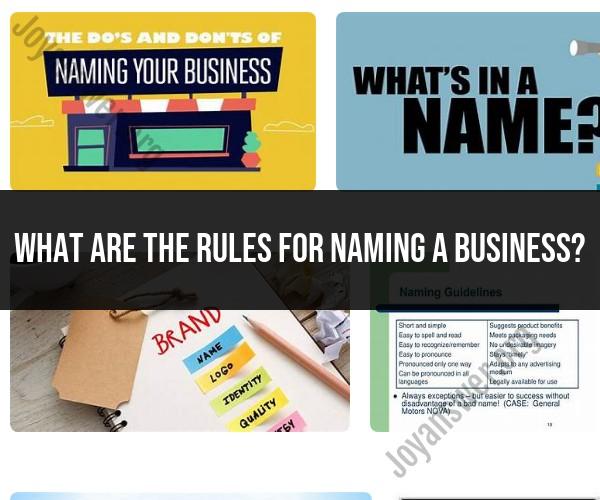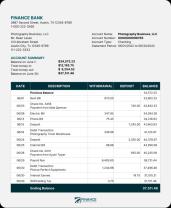What are the rules for naming a business?
Naming a business involves various legal and branding considerations to ensure your chosen name is both unique and compliant with the law. Here are some rules and guidelines for naming a business:
Legal Rules and Considerations:
Uniqueness: Your business name should be unique and not infringe on the trademarks or intellectual property of others. Perform a thorough trademark search to check for existing business names and trademarks in your industry.
Avoiding Misleading Names: Your business name should accurately represent your products or services. Avoid names that may mislead customers about what your business offers.
Legal Structure: Depending on your business structure (e.g., sole proprietorship, LLC, corporation), there may be specific rules regarding the use of certain words or designations in your business name.
State Registration: Register your business name with the appropriate government authority, which may be the state or local government, depending on your location and business structure. This step is often required to legally operate under your chosen name.
Domain Name Availability: Check the availability of a domain name that matches your business name. Having a consistent online presence is important.
Avoid Prohibited Words: Some words may be prohibited or restricted in business names, especially if they imply a connection to government agencies or regulated industries. Research the rules in your jurisdiction.
Branding Considerations:
Memorability: Choose a business name that is easy to remember. Avoid complex or overly long names that may be difficult for customers to recall.
Relevance: Your business name should be relevant to your industry, products, or services. It should give potential customers an idea of what you offer.
Pronunciation: Select a name that is easy to pronounce. Avoid unusual spellings or combinations of letters that may cause confusion.
Future Expansion: Consider the potential for future growth and expansion. Avoid names that limit your business's scope if you plan to diversify your offerings.
Cultural Sensitivity: Ensure your business name does not have negative or offensive connotations in any language or culture, especially if you plan to operate internationally.
Branding Consistency: Your business name should align with your brand identity, mission, and values. It should be consistent with your brand's messaging and image.
Logo Compatibility: Imagine how your business name will look on a logo, business cards, signage, and other marketing materials. It should visually represent your brand effectively.
Trademarking: Consider trademarking your business name to protect it from unauthorized use by others. Consult with a legal professional for guidance on the trademark registration process.
Market Research: Conduct market research to gauge how your target audience responds to your chosen name. Seek feedback from potential customers and stakeholders.
Social Media Handles: Ensure the availability of social media handles that match your business name. Consistency across online platforms is essential for branding.
Competitor Analysis: Analyze the names of competitors in your industry to avoid confusion or similarity.
Ease of Localization: If you plan to expand to international markets, choose a name that can be easily localized or adapted for different languages and cultures.
It's important to note that the rules and requirements for naming a business can vary by country, state, and industry. Consulting with legal professionals and branding experts can provide valuable guidance to ensure your chosen business name meets all legal and branding considerations.












